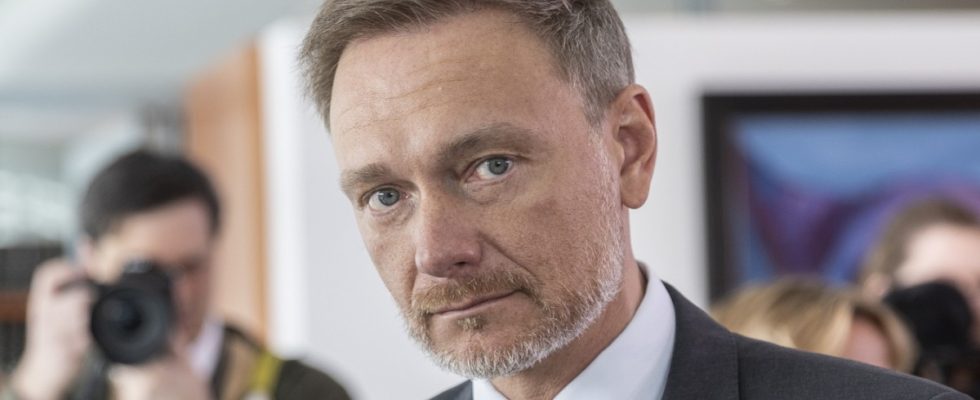Christian Lindner visiting the SPD – it’s a bit like Oliver Kahn showing up at the Borussia Dortmund training ground these days: They play in the same league, sit together on committees, but are otherwise connected in a hearty rivalry. Or not?
The fact that the SPD economic forum invited the finance minister and he immediately accepted the offer at least shows that the chemistry in the traffic light coalition is not quite as bad as is sometimes claimed. “Some might be surprised that I’m speaking here at the SPD economic forum as a liberal finance minister,” Lindner said right at the beginning of his speech, before pointing out that social and free democrats have a very similar view of things on some key issues – different “than many political competitors”. This sets the tone for the debate.
One would probably have rubbed one’s eyes in astonishment if the new friendship between at least parts of the SPD and FDP had not already been hinted at in recent months. SPD Chancellor Olaf Scholz had repeatedly sided with his finance minister in internal coalition disputes, and more and more often one could get the impression that it was not a left-wing red-green alliance that had to enter into a forced marriage with a party close to the CDU, but rather one Center-based social-liberal alliance with a left-wing appendage. The motives of social and free democrats are sometimes different: the SPD is bothered by the Greens’ alleged lack of feeling for the social consequences of their climate policy proposals, the FDP is annoyed by the constant flow of new regulations. As a result, however, Scholz and Lindner often agree: the Greens must be slowed down.
According to the SPD, Robert Habeck leads an “Economic Development Ministry”
From this point of view, Lindner’s appearance at the coalition partner is not at all surprising, but almost logical. Yes, SPD leader Lars Klingbeil and forum president Ines Zenke provide the FDP leader with so many templates that he can completely do without taunting the Greens. Zenke, for example, complains that the Ministry of Economics, headed by Robert Habeck, “shrugs off” the high electricity prices for industry and behaves like a “Ministry of Economic Development”. And Klingbeil presents a catalog of demands that could also have been Lindner’s: reform of EU state aid law, modernization of the infrastructure, fight against the shortage of skilled workers, faster planning and approval processes.
There is only one point of fundamental disagreement, which the invited guest does not address in his speech out of sheer politeness. The SPD is calling for the introduction of an “industrial electricity price” that should take effect as soon as the current electricity price brake expires at the end of this year. To put it more concretely: If the prices remain at a level that is difficult for the industry to sustain, they should be subsidized with the help of taxpayers’ money to a value of around five to seven cents per kilowatt hour. According to Klingbeil, the state must act now so that it is not suddenly found in six, seven or ten years that many energy-intensive companies from Germany have migrated abroad.
Lindner shares the SPD leader’s concern, but not his conclusion, as he explains after his speech when asked by Zenkes. The idea of an industrial electricity price fills him with “great scepticism,” he says – if only because it is difficult to clearly distinguish which companies are considered to be industrial. Craft businesses that compete with industry would also be disadvantaged. state to subsidize electricity costs, the state should rather ensure framework conditions that enable lower market prices for the entire economy. But, the FDP leader reassured, the federal government was already conducting “interesting discussions” on the subject. After all, you are among friends, at least a little bit.

